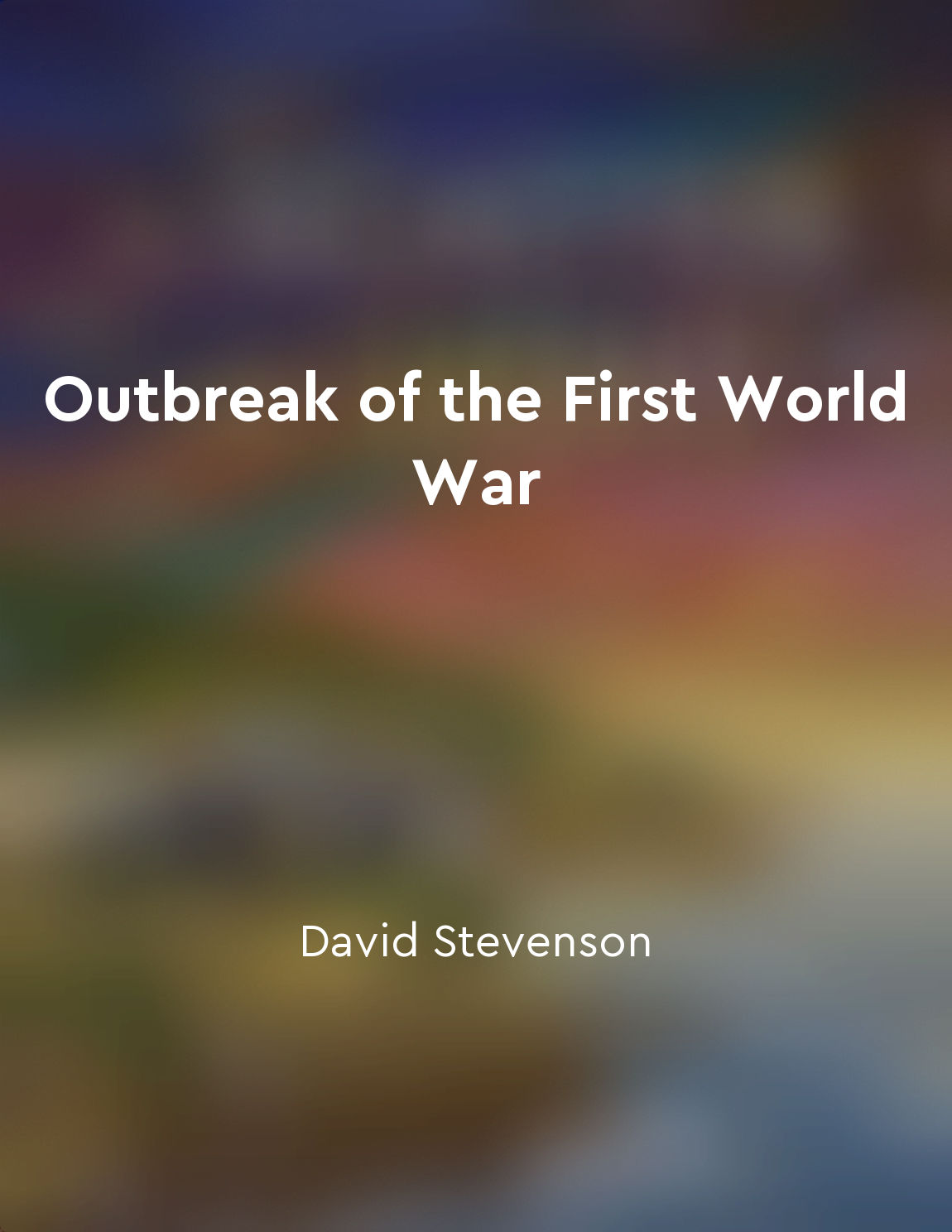Escalation of conflicts from "summary" of Outbreak of the First World War by David Stevenson
The road to the First World War was paved with a series of escalating conflicts that ultimately led to a global conflagration. These conflicts began as minor disputes between individual countries but gradually grew in scope and intensity, drawing in more and more nations until the entire world was engulfed in war. At the heart of this escalation was a complex web of alliances and rivalries that bound countries together in a delicate balance of power. When one nation became embroiled in a conflict, its allies were obligated to come to its aid, dragging them into the fray as well. This domino effect meant that even a small skirmish in a remote corner of Europe could quickly spiral out of control as more and more countries were drawn into the conflict. Additionally, the rise of militarism and nationalism in the late 19th and early 20th centuries further fueled the flames of war. Countries began to build up their armies and navies in a show of strength, leading to an arms race that only served to heighten tensions and increase the likelihood of conflict. Nationalistic fervor also played a role, as populations were whipped into a patriotic frenzy that made the prospect of war more palatable. As tensions continued to rise, diplomatic efforts to defuse the situation became increasingly futile. Each side believed that they were in the right and that their cause was just, making compromise all but impossible. The result was a series of ultimatums and declarations of war that pushed the world ever closer to the brink. In the end, it was this escalation of conflicts, fueled by alliances, militarism, nationalism, and diplomatic failures, that plunged the world into the horrors of the First World War. The lessons learned from this catastrophic event continue to resonate today, serving as a stark reminder of the dangers of unchecked aggression and the importance of diplomacy in preventing future conflicts.Similar Posts
Financial stability
Financial stability is a precarious state. It is not merely a question of the banks. It is a question of the trade, the industr...
Subvert your opponent's strategy
To subvert your opponent's strategy is to disrupt and undermine their plans, throwing them off balance and creating opportuniti...
Property ownership is crucial for political stability
In political communities, property ownership plays a vital role in ensuring stability. The distribution of property among citiz...

Terrorism has become a significant threat to global security
The threat of terrorism looms large over the world today, with its reach extending far beyond national borders. The indiscrimin...
Misunderstandings among world powers led to the outbreak of World War I
The misunderstandings among world powers in the early 20th century were like a tangled web of conflicting interests and ambitio...

Rebuilding of shattered nations
The aftermath of the First World War left a trail of destruction across Europe, with nations shattered and in need of rebuildin...
The Cuban Missile Crisis was a pivotal moment in history
The events of October 1962 may have unfolded in a matter of days, but their impact reverberated far beyond that tense moment in...
The Battle of Tannenberg was a significant victory for the Germans
Barbara W. Tuchman's "The Guns of August" vividly captures the significance of the Battle of Tannenberg as a pivotal moment in ...
